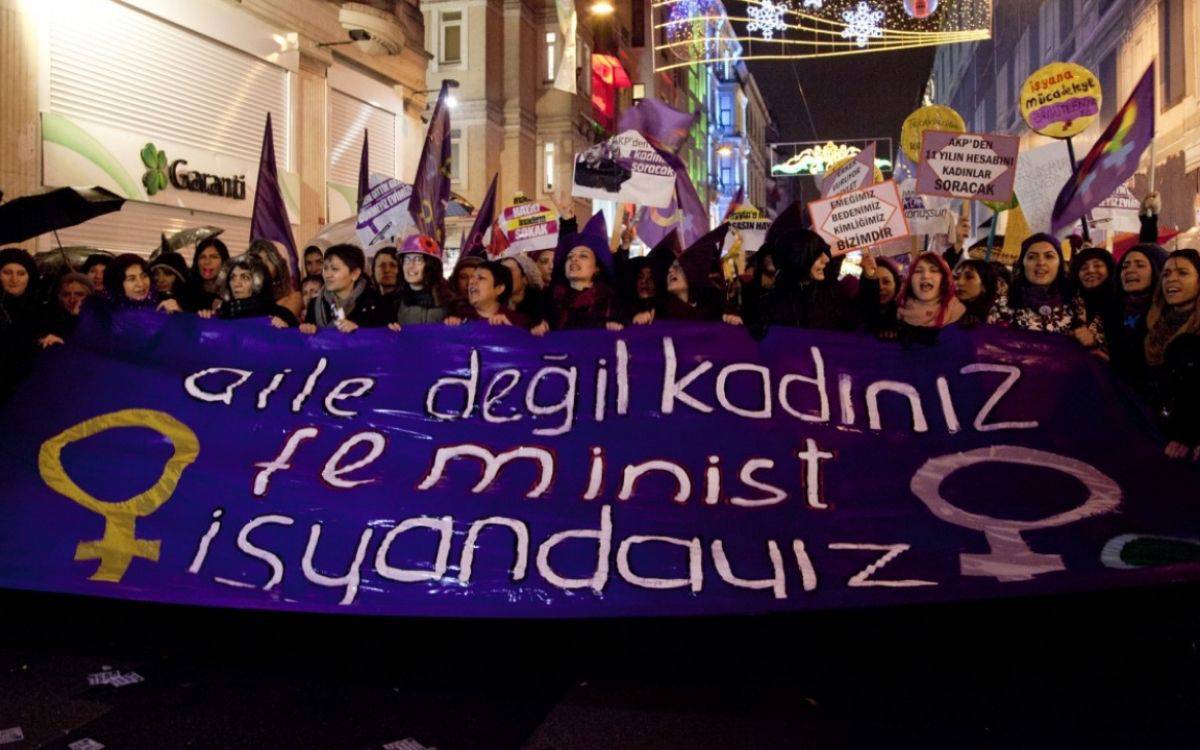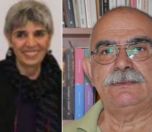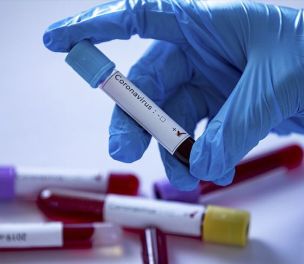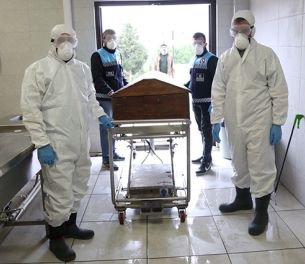Lawyer Who Beats Covid-19: Don’t Give up

Click to read the article in Turkish
"Doctor said that my Covid-19 symptoms subsided, he said that I was responding to the treatment. (...) His joy filled me with a joy of life. His joy for me, his joy for the great humanity and seeing him leaving my room in joy had always given me hope for recovery."
It is how women's rights defender and lawyer Rukiye Leyla Süren has told us about her days at the hospital for Covid-19 treatment.
Süren must have taken the same firm stance which she had in the face of policies disregarding women that she was one of the patients who responded to the treatment most quickly.
Her voice is thinner than usual, she speaks at long intervals. As of today (April 9), she has been in a home quarantine for a week since she was discharged from hospital after her Covid-19 treatment. She has to wait for another week before her room quarantine ends.
"I took down this note at the hospital: I want to recover for two things, one of them is to see my son again and the second is to keep up the struggle."
I ask her about her struggle against the disease, she stresses that health workers are working in very bad conditions.
I ask her about her health condition, he calls out to the ones who have not yet been diagnosed, she urges them to stay home.
She has beaten the disease, but she is constantly thinking about the conditions of hospital personnel. Because she thinks that the society has not yet realized the seriousness of the disease even at this stage.
"It very wonderful to be alive, to be able to speak, to laugh... It is wonderful to see the face of my son again. I wish the same to all patients," she adds.
I am now giving the floor to lawyer Rukiye Leyla Süren:
How did you realize that you had the disease?
We decided to work from home as an office on March 18. Next day, I realized the burning in my eyes. I thought it was due to the hygiene and cleaning products that I started using more frequently for fear of corona.
In the following days, I had a sore throat as well, there was redness and a severe burning on my throat, it got more visible. I thought "Can it be corona?" and called my doctor friends. They asked me if I had fever and cough.
When I said "No", they told me to stay home, not to see a doctor and observe it at home. I had a shiver only for a day. I called my family doctor on the fifth day of the burning in my eyes. The doctor told me that the Ministry of Health said no tests would be done if there was no fever and cough.
Though it is not defined as a chronic disease, I had a semi-open heart surgery due to a late-noticed hole in my heart eight years ago. I had a very busy period of panels and seminars especially due to March 8.
How was your physiological state?
It is such an interesting disease... I went to bed one night and my throat was not sore the next day, but I had a severe nasal flow. Then, nasal flow also started to subside. I thought I did not have corona, but just influenza.
I mean... Even on the 28th, I called people and told them, "I feel good, I have recovered from influenza, I don't have corona." I only had difficulty in breathing and I thought that it was because I was home. On Saturday afternoon, I had a tightness in my chest while having a rest, it was as if there was no oxygen left in the room. I could not breathe and felt dizzy. After some time, after catching my breath for a while, I called pulmonologist Tamer Vardaloğlu. He told me that I had to apply to a hospital immediately.
My son brought me to the Haydarpaşa Numune Hospital. I had a CT scan. We were told that the doctor would see the CT result in 15 minutes.
In the meantime, they took me to the isolation room. I was diagnosed with Covid-19.
How did you feel when you were diagnosed?
To be honest, I was first worried about my son, I got worried about my loved ones. We had a quarantine at home after the first moment when I felt my eyes burning, but I still got very worried.
I got worried about my colleagues at the office, I was worried about my family members that I had met. I was worried if I had transmitted the disease.
One also worries about oneself. A journalist friend of mine would do an interview with me about amnesty in those days. People were worried that the ones to be released from prison might hurt women. I thought about this. I thought that I could not catch up with this, I could not give information.
What did you witness in isolation?
The team was very caring. The whole team was trying to protect themselves. There were so many patients waiting like me.
I sometimes had difficulty in breathing. They were constantly taking blood, doing tests. Covid-19 was diagnosed on the lower-right lung after 3 hours. They said I had to stay in hospital due to my shortness of breath.
I said it to my son a bit gently. He told me "I will go home and bring books and computer for you." I was brought to the isolation room at the general surgery department that night. My treatment started the day after.
Entries into the rooms were periodically made by health laborers who were protecting themselves. All of them were very calm and caring, they were really caring. It was forbidden to leave the room or go out to the hall. The information that we had to keep in mind was hung on the door. The door was not locked, but we were not allowed to open it.
They were doing tests at regular intervals. There were doctor visitations. My doctor friends from outside kept calling me, I was getting support from them.
What were your observations about health workers?
First of all, I am grateful to the doctor... I think he was a specialist of infectious diseases... It was the morning of my second day in isolation. Their faces were all covered, so I don't know who was who. I am grateful to them all. That doctor told me that symptoms subsided, he said "We are getting response to the treatment."
His joy filled me with a joy of life. His joy for me, for the great humanity and seeing him leaving my room in joy always gave me hope for recovery.
And the hospital conditions...
You get worried about the humanity as much as yourself. Health laborers, care attendants, everyone is struggling for the patient. But I want to show the lunch and dinner served at Haydarpaşa Hospital to the Ministry of Health... What kind of a food is that? It is impossible for the healthcare personnel to work there with that food and it is equally impossible for the patients to recover. I survived thanks to the food my son brought for me.
How can these health laborers work? When I said it to a young laborer, she answered "Don't worry about us, you worry about your own health." They are all worried about their patients, they strive to keep them alive.
Sounds of cough and resistance against quarantine were constantly coming from other rooms. There were people who could not stand being locked up. They are constantly working amid those voices. And, you, as a patient, hear those voices and say "How many us will stay alive, I wonder."
How long did you stay in hospital?
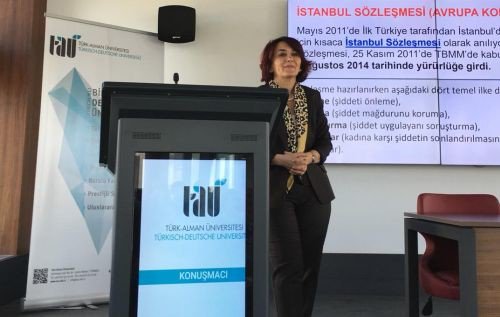
Süren addressing the audience at a panel on women's rights
I stayed in hospital for four days, drug therapy takes 4-5 days there. On the fourth day, the shortness of my breath and tightness of my chest subsided.
I could not breathe like before, but I was not having a problem of pressure, either. Doctors were also asking the symptoms everyday.
Can you tell us about your process of discharge from the hospital?
Prof. Nurgül Ceren came on the third and fourth days. Especially in the evening of the third day, she told me that my treatment was going well, I could be discharged if I did not have any problems with breathing, but I should not hide the symptoms. I got very happy when she told me that I was the patient who gave the best response to the treatment.
The treatment continued on the fourth day, I told them I was feeling well and I could continue my treatment at home for that reason. I was indeed getting up from the bed more easily, I was also breathing more easily. While I could not even talk on the phone in the first two days, I could now speak more easily.
Prof. Nurgül came. When they told me that my lungs eased, I could be discharged from the hospital and they would give my medicine to take them home with me, I was really very happy.
"I took down this note at the hospital: I want to recover for two things, one of them is to see my son again and the second is to keep up the struggle.
Yes, we know you from your struggle for the right to life...
Living is very beautiful. We are going through a very different period now. While waging a constant struggle for women's right to life, the right to life of the whole world is at risk now. I think it is not yet known, I think especially what is happening at the hospital is not understood by the society.
How are your quarantine days at home?
I am constantly getting vitamin supplements. I am constantly thinking about the ones treating people at the hospital, about the hospital workers. Health laborers are fighting alone on the front line. I am thinking of ways to stand by them more. They are fighting there all alone.
It is wonderful to be alive, it is wonderful to be able to speak, to be able to laugh... It is wonderful to see the beautiful face of my son again. I wish the same to all patients.
What caught your attention the most about the disease?
The most important of all was the sudden appearance and disappearance of the symptoms. It was not similar to any influenza that I had in my life. It is like another living being enters your body and lives there. It moves out of you. You have a runny nose, you cannot breathe while you could easily do so a couple of hours ago. You start to cough all of a sudden or on the very contrary. It caught my attention a lot. They should be careful about this.
Morale is very important. A doctor friend of mine called me and said, "Don't ever give up, stay strong." She constantly told me this. It is very important to be in good spirits. Keeping the morale high and not giving up is important for both the patient and healthcare personnel. But I also realized this: The virus is not truly known. I am also grateful to cardiologist Ali Rıza Kılınç.
Do you have a message for the ones who do or don't have the disease?
Don't ever go out. Yes, health workers are doing their duties, but they are doing this by giving up on their own lives. It is very important. Their working conditions need to be monitored better, they have to be supported.
Everything that is private is political. The right to life of health workers is being violated, their working conditions, food and hygiene conditions are not good. They need more support.
And, for the ones who have the disease, I can recommend that they should not deny the disease and should not reject the quarantine. Not only you, but not transmitting it to others as well... That is what matters. (EMK/SD)
Over 100 youths released after mass arrests during İmamoğlu protests
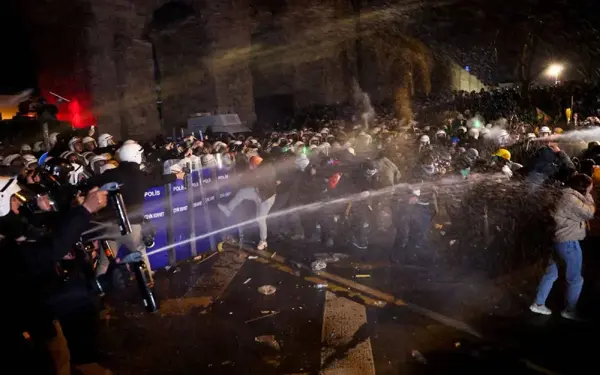
MALE VIOLENCE MONITORING REPORT MARCH 2025
Men killed 24 women in March
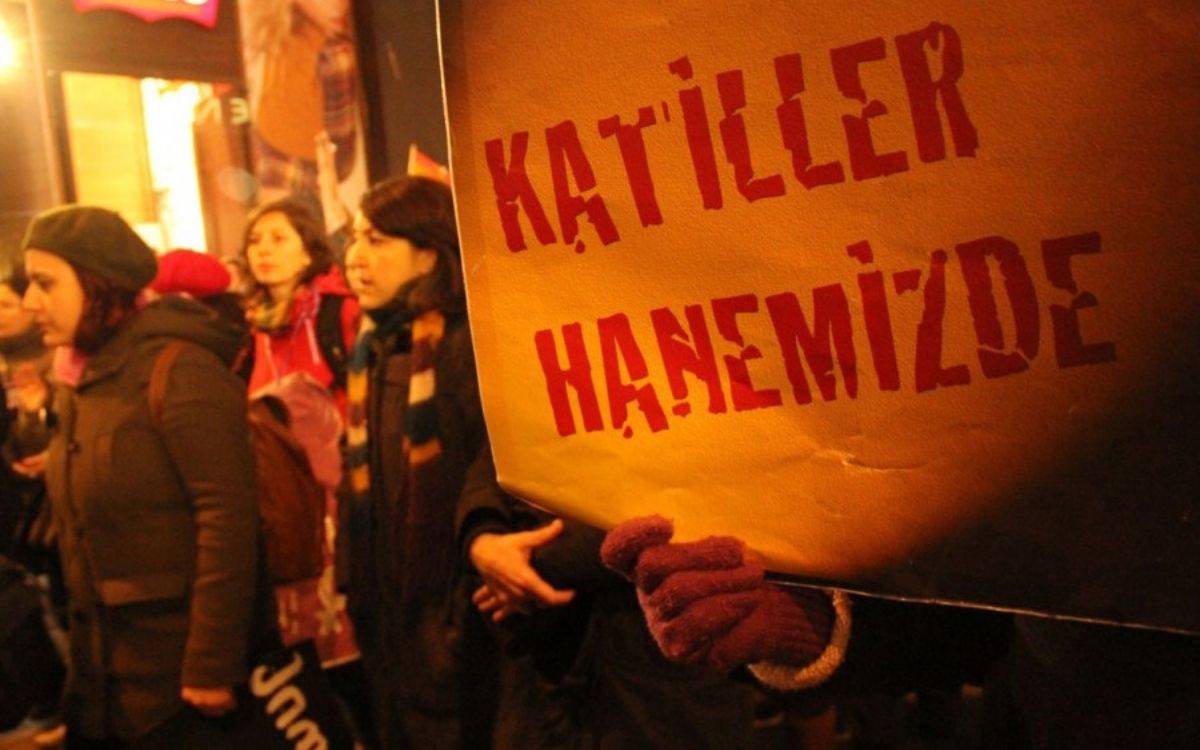
Woman alleges sexual harassment by police during İstanbul protest detention
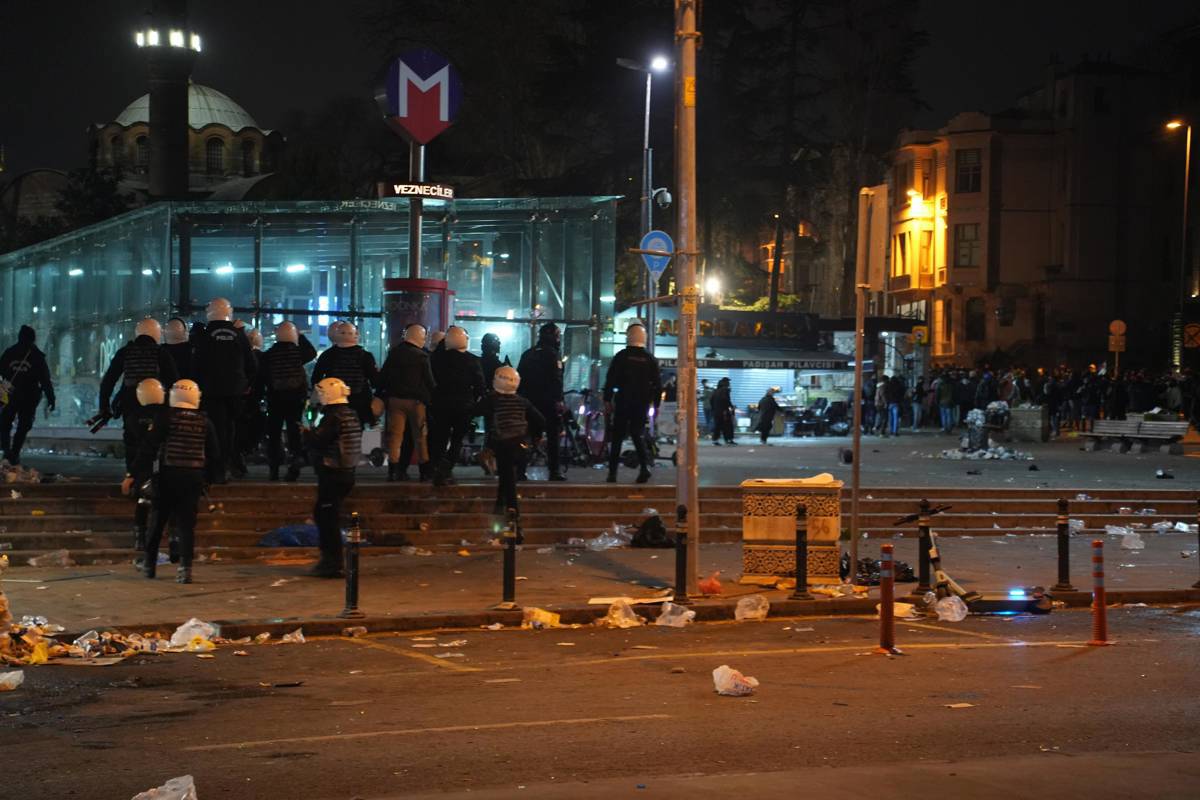
WOMEN'S DAY
Thousands attend Feminist Night March despite restrictions
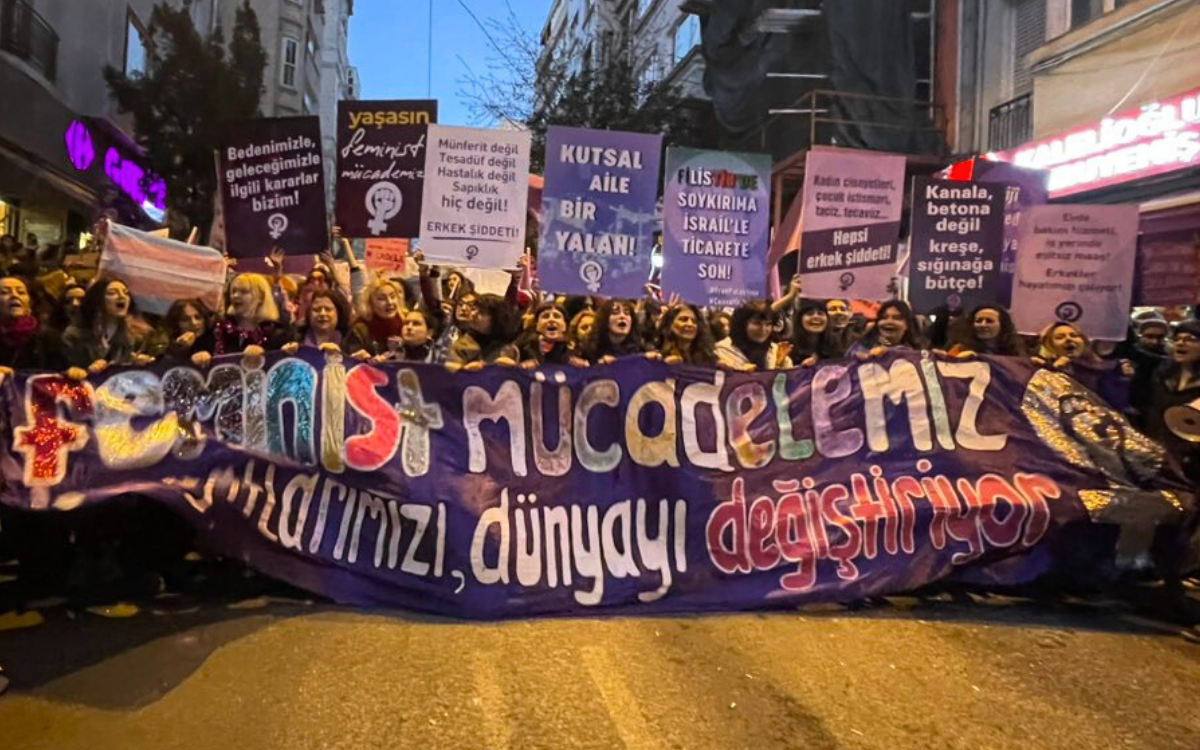
MALE VIOLENCE MONITORING REPORT FEBRUARY 2025
Men killed 17 women in February
